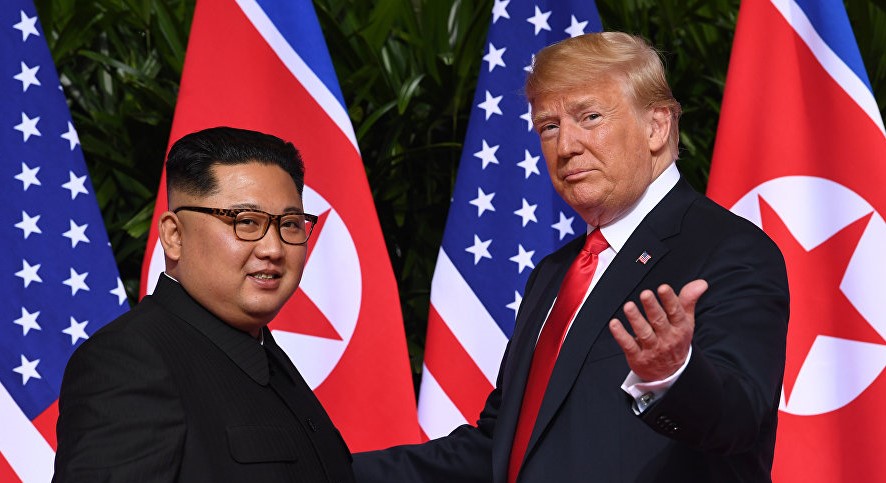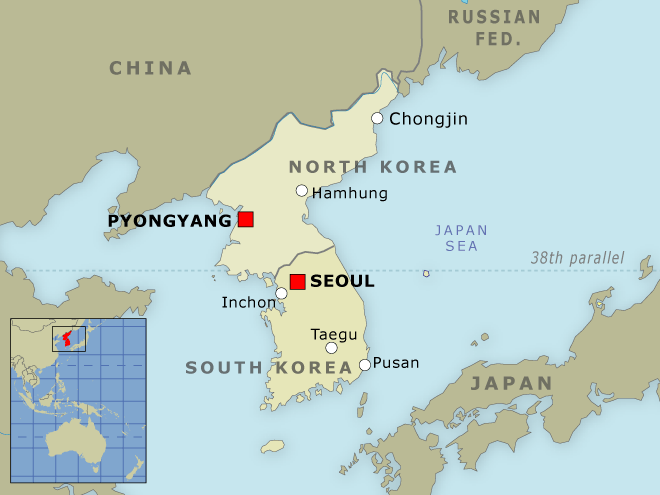Singapore Summit 2.0
August 22, 2018 | Expert Insights

President Trump is actively considering another meeting with the Supreme Leader of North Korea.
Background
The relationship between the US and North Korea has always been fractious. During the war between North and South Korea in 1950, US forces successfully intervened on behalf of South Korea.
The North Korean nuclear program has been a source of concern for the US and the international community for decades. North Korea has remained an isolated nation and its nuclear program has especially been a concern for the international community. In 2017, North Korea has launched 23 missiles in the course of 16 tests. In November 2017, North Korea after seemingly two months of silence tested its most potent missile yet. The Hwasong-15 missile reached an unprecedented height of almost 4,500 kilometers (2,800 miles). The Hwasong-15 is a new type of intercontinental ballistic missile. This represents a serious escalation in the stability of the Korean peninsula.
Trump has taken an aggressive stance while countering North Korea. In 2017, he said that North Korea “will be met with fire and the fury like the world has never seen.” North Korea responded by announcing that plans were underway for it to strike Guam, a US territory. Both Kim Jong Un and Donald Trump were locked in an extended war of words in 2017, with both threatening wars.

Read more on our extensive analysis on the US-North Korea summit and recent developments here, here and here.
Analysis
U.S. President Donald Trump said on Monday he would “most likely” meet again with North Korean leader Kim Jong Un while defending his efforts to convince Pyongyang to give up its nuclear weapons.
In an interview with Reuters, Trump, who held a landmark summit with Kim on June 12, said he believed North Korea had taken specific steps toward denuclearization, despite widespread doubts about Kim’s willingness to abandon his arsenal.
However, several analysts and experts note that no concrete measures are taken by the Kim Jong Un regime to dismantle their nuclear program. They believe that North Korea will negotiate seriously only if the US promises to withdraw the sanctions.
Last month Secretary of State Mike Pompeo told a Senate committee hearing, that North Korea was continuing to produce fuel for nuclear bombs, and a U.S. official said U.S. spy satellites detected renewed activity at the North Korean factory that produced missiles capable of reaching the United States.
Critics say Trump made too many concessions to Kim by agreeing to hold the summit in the first place and then suspending joint U.S.-South Korea military drills while gaining little in return. When asked whether North Korea had taken specific steps to denuclearize other than blowing up its main nuclear bomb test site ahead of the summit, Trump: “I do believe they have.” But he did not elaborate.
He also pointed to North Korea’s pre-summit handover of three American detainees. Regarding the possibility of another meeting with Kim being on the horizon, Trump said: “It’s most likely we will, but I just don’t want to comment”, deliberately staying ambiguous on a firm date or place.
Assessment
Our assessment is that North Korea and the US will agree to another meeting but neither party will cede their basic demands. The US is unlikely to lift sanctions before North Korea denuclearizes, whereas North Korea is unwilling to denuclearize before the sanctions are lifted. We feel that a new era may be on the horizon for both the US and North Korea which will be built on a mutual distrust of the status quo.








Comments